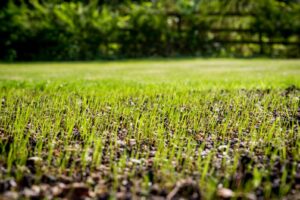
Horses, elegant creatures, have been our companions for centuries. Whether used for riding, racing or as friends it is vital to prioritize their health and well being.
One critical aspect of ensuring their wellness involves meeting their needs. This practical handbook aims to offer insights to horse owners on comprehending and fulfilling the requirements of their equine companions.
Understanding the Basics of Horse Nutrition
Proper nutrition serves as the foundation for a horse’s well being. Horses are herbivores. Possess a system that thrives on a fiber rich diet.
To make informed decisions about their horses’ feeding routines, horse owners must acquire a thorough understanding of horse nutrition. Explore The Equine Institute for additional information on this crucial aspect.
1. Forage: The Bedrock of Equine Diets
Forage such as hay and pasture grasses should comprise the majority portion of a horse’s diet. It provides fiber that promotes digestion and helps prevent complications like colic.
Different types of forage offer profiles necessitating careful selection based on each individual horse’s specific requirements.
2. Concentrates: Achieving Diet Balance
While forage plays a role there are instances where concentrates like grains and pelleted feeds become supplements, in the diet plan. These additional supplements provide horses with energy, protein, vitamins and minerals.
However it’s important to feed these supplements in moderation and adjust the amounts based on each horse’s age, activity level and overall health.
Understanding the Nutritional Needs of Horses
Horses have requirements that depend on factors, like their age, activity level and reproductive status. Customizing their diet to meet these needs ensures they maintain health and performance.
1. Age Matters: Nutrition for Foals Adult Horses and Senior Horses
- Foals: Growing foals need a diet that’s rich in nutrients to support their bone and muscle development. When forage alone isn’t sufficient, introducing a high quality mares milk replacer or creep feed can be beneficial.
- Adult Horses: Adult horses benefit from a balanced diet that fulfills their energy requirements. This includes a combination of forage and supplements while adjusting the quantities based on the horse’s workload and body condition.
- Senior Horses: As horses grow older their dental health may deteriorate which makes consuming hay challenging.
Therefore it becomes essential to provide them with feeds specifically designed for digestion and absorption. Regular dental check ups are also crucial in maintaining their well being.
2. Weight Management Workload and Nutrition
- Weight Management: Keeping a horse at a body weight is vital for its health. Horses that carry weight face the risk of health problems while those with insufficient weight may lack essential nutrients.
It is crucial to assess their body condition and adjust their feeding plans to manage their weight effectively.
- Workload: When it comes to horses engaged in work they require calories to meet their energy demands.
It is important to make adjustments to the concentrate portion of their diet and ensure they stay properly hydrated as these factors greatly impact the performance of horses.
Essential Nutrients for Horses
To design a balanced diet for horses it is vital to understand the nutrients they need.
1. Protein: Building Blocks for Health
These include protein, which is essential for muscle development, immune function and overall health. Horses obtain protein from forage and concentrates; however it’s important to ensure a balance of acids for health.
2. Vitamins and Minerals: The Micronutrient Puzzle
Vitamins and minerals also play roles in physiological functions of horses. While forage provides many of these micronutrients there are cases where concentrates may be necessary to meet requirements.
Regular blood tests can help identify any deficiencies or imbalances in this regard.
3. Water: The Foundation of Health
Water is often. Holds importance as the foundation of good health for horses. Providing access to clean water is crucial since inadequate intake can lead to dehydration, colic and other related health issues.
Feeding Practices and Guidelines
When it comes to feeding practices and guidelines:
1. Regular Feeding Schedule
Maintaining a feeding schedule is crucial for keeping a horse’s health in check. Horses thrive on routine and having mealtimes helps prevent any issues.
2. Body Condition Scoring
It’s an approach to regularly evaluate a horse’s body condition as a means of monitoring their health. Adjusting their diet based on body condition scores ensures they receive the amount of calories they need.
3. Monitor Forage Quality
Keeping an eye on the quality of forage is essential since its nutritional content can vary. Testing hay to determine levels allows horse owners to make decisions regarding supplementation with concentrates.
4. Consideration for Special Cases
- Grazing Horses: Horses with access to pasture may have different nutritional requirements. Monitoring pasture quality, managing grazing time and providing nutrients when needed are factors to consider.
- Pregnant and Lactating Mares: Broodmares have increased nutritional needs during pregnancy and lactation. Adjustments in their diet including higher quality forage and concentrates are necessary to support both the mare and the developing foal.
Common Nutritional Challenges and Solutions
1. Obesity and Metabolic Issues
Concerns like obesity and metabolic conditions such as insulin resistance are quite common. Managing these situations involves finding a balance between forage, concentrates and regular exercise, it often becomes necessary to limit access to high sugar forages and concentrates.
2. Taking Care of Dental Health
It’s important to keep an eye on your horse’s health because it can affect their ability to chew and digest food properly. Make sure to schedule check ups and consider adjusting their diet if needed like providing soaked hay or other forage options to help address any issues.
3. Keeping Your Horse Hydrated
Dehydration can be a problem for horses so it’s crucial to encourage them to drink plenty of water in hot weather or when they’re being more active. Soaking hay or offering feeds can also contribute to keeping them hydrated.
Conclusion
Caring for a horse’s needs is a commitment that has a direct impact on their overall health and well being. By focusing on a diet that is tailored to each horse’s specific requirements owners can ensure that their equine companions lead healthy and happy lives.
Regular monitoring, adjusting feeding plans as necessary and collaborating with equine nutritionists or veterinarians all play a part in taking an approach to horse nutrition. Remember, a fed horse is one that will be content and thrive alongside its owner.







